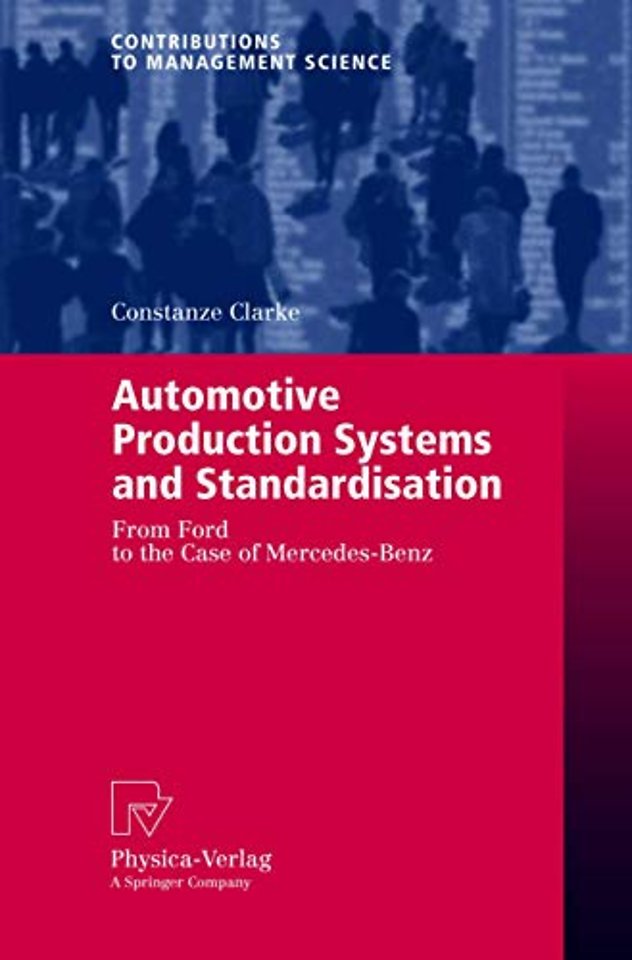Automotive Production Systems and Standardisation
From Ford to the Case of Mercedes-Benz
Samenvatting
In January 2000, Mercedes-Benz started to implement the Mercedes-Benz Prod- tion System (MPS) throughout its world-wide passenger car plants. This event is exemplary of a trend within the automotive industry: the creation and introduction of company-specific standardised production systems. It gradually emerged with the introduction of the Chrysler Operating System (COS) in the mid-1990s and represents a distinct step in the process towards implementing the universal pr- ciples of lean thinking as propagated by the MIT-study. For the academic field of industrial sociology and labour policy, the emergence of this trend seems to mark a new stage in the evolution of the debate about production systems in the auto- tive industry (Jürgens 2002:2), particularly as it seems to undermine the stand of the critics of the one-best way model (Boyer and Freyssenet 1995). The introduction of company-level standardised production systems marks the starting point of the present study. At the core of it is a case study about the M- cedes Benz Production System (MPS).
Specificaties
Inhoudsopgave
Anderen die dit kochten, kochten ook
Net verschenen
Rubrieken
- aanbestedingsrecht
- aansprakelijkheids- en verzekeringsrecht
- accountancy
- algemeen juridisch
- arbeidsrecht
- bank- en effectenrecht
- bestuursrecht
- bouwrecht
- burgerlijk recht en procesrecht
- europees-internationaal recht
- fiscaal recht
- gezondheidsrecht
- insolventierecht
- intellectuele eigendom en ict-recht
- management
- mens en maatschappij
- milieu- en omgevingsrecht
- notarieel recht
- ondernemingsrecht
- pensioenrecht
- personen- en familierecht
- sociale zekerheidsrecht
- staatsrecht
- strafrecht en criminologie
- vastgoed- en huurrecht
- vreemdelingenrecht







